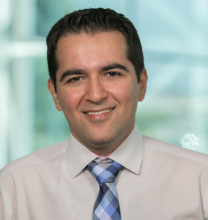CEE Seminar: Bridging AI and Engineering - The Role of Evolutionary Intelligence

Professor of Data Science
University of Technology Sydney
Abstract: Artificial Intelligence (AI) has revolutionized industries over the past two decades, emerging as a critical tool for tackling complex, real-world challenges. Its ability to process and analyze massive datasets has reshaped engineering practices, optimizing large-scale systems and enhancing decision-making processes. This presentation begins with an overview of AI’s transformative role in modern civil engineering, emphasizing its key contributions and the opportunities it presents for innovation. The discussion then narrows to a specialized AI approach: Evolutionary Intelligence (EI). Inspired by natural phenomena such as evolution and collective behavior, EI provides a powerful method for solving complex, nonlinear engineering problems. By mimicking nature’s most efficient strategies, EI has demonstrated significant success across various engineering disciplines. A key focus will be genetic programming, an automated learning approach with applications in big data analytics and predictive modeling. The session will highlight major advancements in evolutionary learning, showcasing their impact on civil engineering challenges, including water, geotechnical and mechanical system optimization. This section will be followed by an exploration of EI in optimizing civil engineering systems, with practical case studies on large-scale and many-objective optimization problems demonstrating EI’s superiority over traditional methods. The presentation concludes with an exploration of adaptable heuristic techniques that further enhance EI’s optimization capabilities. By bridging theoretical innovation with practical engineering applications, this session will demonstrate how EI is shaping the future of AI-driven optimization in civil engineering.
Bio: Amir H. Gandomi is a professor of data science at the Faculty of Engineering & Information Technology, University of Technology Sydney, Australia. He is also affiliated with Obuda University, Budapest, as a Distinguished Professor. Prior to joining UTS, Gandomi was an assistant professor at the Stevens Institute of Technology and a distinguished research fellow at BEACON Center, Michigan State University. Gandomi has published over three hundred journal papers and 12 books which collectively have been cited over 62,000 times. He has been named as one of the most influential scientific minds and received the Highly Cited Researcher award from Web of Science, six times. In a recent study at Stanford University, Gandomi is ranked as the 24th most impactful researcher in the AI and Image Processing subfield in 2023. He has received multiple prestigious awards for his research excellence and impact, such as the 2024 IEEE TCSC Award for Excellence in Scalable Computing (MCR), the 2023 Achenbach Medal, and the 2022 Walter L. Huber Prize, the highest-level mid-career research award in all areas of civil engineering. Gandomi is active in delivering keynotes and invited talks. His research interests are big data analytics and global optimization using machine learning and evolutionary computations in particular.
Share
Upcoming Events
-
EECS 294 Seminar: Programming Light Diffraction for Information Processing and Computational Imaging
-
MAE 298 SEMINAR: Stretchable Electronics for Soft Biological and Robotic Systems
-
CBE Distinguished Lecture/CBE 298 Seminar: Computational Design of Peptides as Detectors, Sensors and Drugs
-
MSE 298 Seminar: Molecular Modeling in the Age of AI - From Energy Materials to Device Simulations
-
CBE 298 Seminar: Metal Electrodeposition for Modern Mineral Refining
